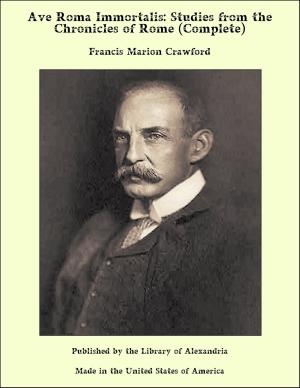| Author: | William B. Stephenson | ISBN: | 9781465559876 |
| Publisher: | Library of Alexandria | Publication: | July 29, 2009 |
| Imprint: | Library of Alexandria | Language: | English |
| Author: | William B. Stephenson |
| ISBN: | 9781465559876 |
| Publisher: | Library of Alexandria |
| Publication: | July 29, 2009 |
| Imprint: | Library of Alexandria |
| Language: | English |
THAT the Voice of the North calls insistently to him who once has dwelt amidst its snows is neither myth nor legend. It is history. Like the Song of the Lorelei, having heard it once it rings in his ears forever. True, it is a strenuous game which Man plays against Nature in Alaska. There, as nowhere else on earth, he pays the price for what he gets. Yet if you ask one who has loved and left her, one who has lived among her mountains, experiencing alike the bitter winter and the wondrous Alaskan summer, every day of which is perfect beyond the power of words to describe, even though he may deny the call it is not difficult to detect the hidden longing underlying his reply. For it is a fact not to be gainsaid that after such an experience, no matter how much a man may have looked forward to a life of ease after his return, he seldom finds it satisfying. Usually when he goes back home it is to find his old friends scattered or dead. The old pleasures turn to gall and wormwood in his mouth. In time the jar and turbulence of cities get on his nerves. He begins to hear the Voice! The old residents of Alaska, they who have lived there so long that they seem a part of the land itself, always smile grimly when they hear a man begin to curse the land where he has made his wealth and swear that he never wants to see it again. To them it is an old story. They have seen many return to the regions whence they came. And they have seen most of them come back! They alone know the truth of the line from the old Norse legend: "Dark and true and tender is the North!" Following the opening up of the gold fields much was written of Alaska, but it was confined largely to the territory of the Yukon and the unsettled, chaotic conditions of the hour. The fortunate few who, through the medium of poem, song or story, have revealed the glories and the tragedies of this part of the country have done their work well. The record of that now-historic stampede to the Klondike gold fields has journeyed to the uttermost parts of the earth. But all this was twenty years ago. The Alaska of to-day is not what it was then, and there are sections of this marvelous country which no artist has yet painted and of which no poet has yet sung. Were this not true the present scribe would have no task,—no reason for adding to the list. Alaska is calling for men,—men to cultivate her farms, to develop her mines, to build her railroads, to man her fisheries and her lumber camps. She will soon be asking for business men to manage her stores, for lawyers, doctors and dentists, for teachers, ministers and priests, for actors and motion picture operators. In another year Uncle Sam's great railroad will be running Pullman cars across this sparsely-settled country. This means progress. Alaska will begin to live. She will prove a good although at certain seasons of the year a frigid mother to thousands yet unborn. The homely old proverb in regard to the early bird is peculiarly applicable to Alaska. The worm is only waiting to be caught
THAT the Voice of the North calls insistently to him who once has dwelt amidst its snows is neither myth nor legend. It is history. Like the Song of the Lorelei, having heard it once it rings in his ears forever. True, it is a strenuous game which Man plays against Nature in Alaska. There, as nowhere else on earth, he pays the price for what he gets. Yet if you ask one who has loved and left her, one who has lived among her mountains, experiencing alike the bitter winter and the wondrous Alaskan summer, every day of which is perfect beyond the power of words to describe, even though he may deny the call it is not difficult to detect the hidden longing underlying his reply. For it is a fact not to be gainsaid that after such an experience, no matter how much a man may have looked forward to a life of ease after his return, he seldom finds it satisfying. Usually when he goes back home it is to find his old friends scattered or dead. The old pleasures turn to gall and wormwood in his mouth. In time the jar and turbulence of cities get on his nerves. He begins to hear the Voice! The old residents of Alaska, they who have lived there so long that they seem a part of the land itself, always smile grimly when they hear a man begin to curse the land where he has made his wealth and swear that he never wants to see it again. To them it is an old story. They have seen many return to the regions whence they came. And they have seen most of them come back! They alone know the truth of the line from the old Norse legend: "Dark and true and tender is the North!" Following the opening up of the gold fields much was written of Alaska, but it was confined largely to the territory of the Yukon and the unsettled, chaotic conditions of the hour. The fortunate few who, through the medium of poem, song or story, have revealed the glories and the tragedies of this part of the country have done their work well. The record of that now-historic stampede to the Klondike gold fields has journeyed to the uttermost parts of the earth. But all this was twenty years ago. The Alaska of to-day is not what it was then, and there are sections of this marvelous country which no artist has yet painted and of which no poet has yet sung. Were this not true the present scribe would have no task,—no reason for adding to the list. Alaska is calling for men,—men to cultivate her farms, to develop her mines, to build her railroads, to man her fisheries and her lumber camps. She will soon be asking for business men to manage her stores, for lawyers, doctors and dentists, for teachers, ministers and priests, for actors and motion picture operators. In another year Uncle Sam's great railroad will be running Pullman cars across this sparsely-settled country. This means progress. Alaska will begin to live. She will prove a good although at certain seasons of the year a frigid mother to thousands yet unborn. The homely old proverb in regard to the early bird is peculiarly applicable to Alaska. The worm is only waiting to be caught















